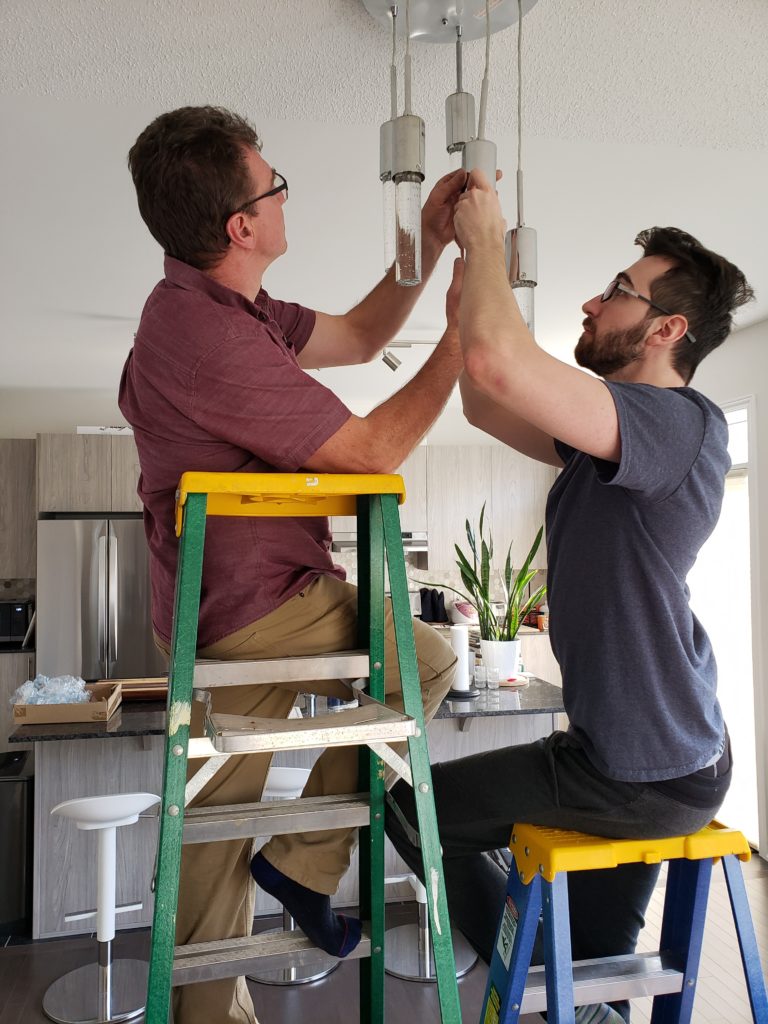
- calendar_month October 14, 2022
Real estate transactions are usually so massive that disagreements are commonplace. We try to catch potential pain points as early on in the process as possible. But some home sales are a little more turbulent than others. Real estate fixture disputes are one of the most common sources of discord in this industry. Unfamiliar with fixtures in real estate? In realty terms, a fixture is an item that is attached (or affixed) to the sale property. You can include or exclude a real estate fixture from the sale of a home. But if you’re not clearly highlighting these terms at the outset, expect a few headaches.
What is a Fixture in Real Estate?
Photo credit: Envato
Clients can sometimes struggle to understand what constitutes a fixture real estate professionals would easily recognize. Light fixtures are an easily identifiable example. But what about something like a gazebo? This would actually be an example of a real estate fixture as well. When in doubt, ask yourself whether the item physically attaches to the property. If it affixes in any way, you’re most likely dealing with a fixture. But what if a seller has a particularly emotional attachment to that gazebo as well as the means to have it excavated and moved with them? Could they feasibly write an exclusion for their gazebo into the deal? Yes, you can exclude fixtures in real estate. You just have to exclude them correctly… and some agents struggle with this distinction.
The MLS Cannot Exclude a Real Estate Fixture
Part of the issue stems from a misunderstanding that listing exclusions on the MLS or other marketing materials is sufficient to warrant a legal agreement. These aren’t legally binding documents. If a seller informs an agent to exclude a specific real estate fixture from a sale, it must be added to either a counter or an addendum. Anything else is simply a gentleman’s agreement with no legal standing. At the close of escrow, the property must retain any fixed items not specifically noted for exclusion.
A More Comprehensive RPA
Photo credit: Envato
The recently updated California Residential Purchase Agreement (RPA) has helped to clarify real estate fixture exclusions by specifying the most common exclusions. Employing a checkmark-based list, agents can simply check off the excluded items. You’ll also find opportunities to write in additional items for exclusion. While a brief list of potential excluded items existed on the RPA before, the new RPA offers a much more comprehensive index. Now, you’ll find state-of-the-art fixtures in real estate such as Ring doorbell cameras, Nest Thermostats, and charging stations for EVs alongside classic standards like fridges and washing machines.
Touring for Fixture Exclusions
Even from a seasoned agent’s perspective, the type of object that qualifies as a real estate fixture can be surprising. And you can bet that if the agent is caught off guard, the client will be too. That’s why it’s an agent’s responsibility to tour the premises with their client at the listing appointment and point out fixtures for possible exclusion. The last thing anyone wants is an 11th hour headache due to an overlooked fixture a client assumed would be excluded. Nothing should be taken for granted.
Strategizing Around Fixed Item Exclusions
Photo credit: Envato
Some agents even draft up their own checklists to help them fully understand what their clients wish to exclude, if anything. This helps them to stay ahead of potential disputes. For example, say the client has a lavish chandelier on display that they intend to bring with them when they move. The agent can use this information to draft a counter that excludes the chandelier. They can also use outside-the-box approaches, such as simply replacing the chandelier with another decorative item prior to the listing. The buyer can’t demand a chandelier they never even knew existed!
Leased or Loaned Items
Along the same lines as fixtures in real estate, the seller is required to disclose any leased and liened items to the buyer. One of the most common examples we see of this are solar panels that haven’t been paid off. The seller is responsible for not only specifying the leased or loaned items, but also delivering the written materials pertaining to these items, as well as transferring any services related to these items, to the buyer.
Everything’s Negotiable
Remember, when it comes to real estate fixture plans, everything is up for negotiation. Your best bet is to listen to that old adage “forewarned is forearmed”. If you’re an agent, bring your list of potential fixtures to your listing appointment. Make sure the seller understands that everything is on the table. As long as you address and disclose these items in advance, you’ll have nothing to worry about.



